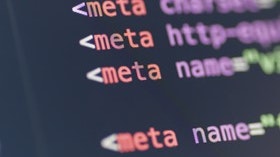Homepage
•
Learning Library
•
Blog
•
Hadi Partovi: Teach computer science to all students
Expand breadcrumbs
Expand breadcrumbs
- Learning Library
- Blog
- Hadi Partovi: Teach computer science to all students
- Homepage
- •
- Learning Library
- •
- Blog
- •
- Hadi Partovi: Teach computer science to all students
Hadi Partovi: Teach computer science to all students
By Team ISTE
December 6, 2016








